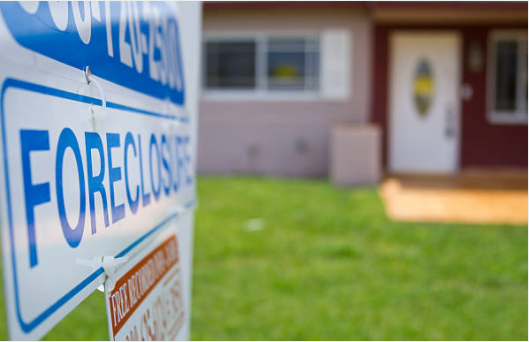Are Rent-to-Own Home Offers Legitimate
February 27, 2021
As with any offer or contract, be sure to do some research, not everything is as good as it may seem.
Many people dream about owning their own home but don’t feel they can afford it, for various reasons. It can be a considerable commitment to scrape together a down payment and all of the legal and closing costs involved in buying a property from a seller.
In addition, people might be deemed a credit risk for various reasons, which means it could be difficult to get an affordable mortgage, homeowner’s insurance, and so on. They might also have unpredictable income due to working for a commission, for example, making them seem a greater risk to the bank they have applied to for a mortgage.
One recent idea for extending home ownership to those who might not otherwise qualify is the "rent to own your home" offer. The principle behind it is that your monthly rental payments won’t just be rent, or "dead money" as some people call it, but a payment towards equity in the house - with a view to paying off the full price of the home and eventually owning it outright.
This can sound like a dream come true, but as with all things, it is a case of buyer beware.
A Typical Rent-to-Own Agreement
In a rent-to-own deal, the person or company that owns the home you are interested in agrees to sell it to you in the future for a specific price. The rent you pay every month is counted toward your future down payment on the house.
However, these deals can be risky, and even complete scams, for a number of reasons. There are several main issues to look out for:
1. The "seller" doesn’t really own the property
Some people are renting the home themselves, and would only be subletting to you. Or they have keys and access to the property, but no right of ownership.
2. The owner hasn’t paid property taxes
This can mean your payments get eaten up, giving you a lot less equity in the house and making it take much longer to pay it off.
3. The owner is not allowed to sell it
There can be a number of reasons for this. They might not be paying taxes and have a lien on the property. It might also be in a designated flood zone and thus have restrictions on it being sold.
4. The house is in terrible shape, or has issues like lead or asbestos
This will cost you a great deal in the long run and of course, is a grave health concern. A full home inspection should be carried out before ever considering a rent-to-buy deal.
5. Promised repairs are never done, ever after the contract is signed
The smart thing to do is not commit until the fixes have been completed and the house passes inspection.
6. The house is in foreclosure
The person trying to "sell" you the home does not actually own it because they have failed to pay their mortgage and the bank is in the process of reclaiming their property.
7. They back out of the agreed-upon price, especially when you are nearing the end of the payment process
Not everyone keeps their end of a deal. Then you feel stuck and of course are not willing to walk away because you have already paid in so much. If you’ve done things "on the cheap," chances are you did not consult with a lawyer, and might hesitate or not have the money to hire one to defend your rights in course.
8. Their terms are unduly harsh
Some will negate the deal if one payment is missed.
Bottom line:
Look for ways to boost your credit and save for a down payment so you will be eligible for a mortgage and be able to afford the house you really want, and not get scammed into a deal just because you think it is all you can afford.

One of the main questions new homeowners have is how soon they can move in once they spot the house of their dreams. The truth is that the process can take around three to six months from start to finish. It's not as simple as just viewing the houses and falling in love with one and buying it. Unless you have cash in your pocket to buy it, you’ll have to deal with various stages of paperwork from opening to closing the deal, and getting the keys so you can move in. Getting Pre-Approved for Your Mortgage Getting pre-approved is key so you know your budget (roughly) and realtors will be willing to work with you. Get a pre-approval letter from your lender before you start to look. Viewing Houses Viewing houses can be the fun and also the frustrating part. It will depend on your needs and tastes. It will also depend on how soon you want to move. Expect the entire process to take at least three months. Making an Offer If you decide you want to make an offer, do so through your realtor. Giving an Earnest Money Deposit Once you decide to make an offer, you will need to give an earnest money deposit of 1% to 3% of the price of the home. This will show you are serious, and the seller will then take the house off the market. Give the money to your realtor, who will put it in escrow for safekeeping until it can be used as part of the down payment for your house. The House Inspection The house inspection is essential in order to determine if the price is right, and if the house is in good repair. You can adjust your offer based on what the inspector finds. Once the list of repairs is completed, or you’ve agreed to a lower price, the sale can go ahead. Finalizing Your Mortgage Once you are clear about how much you need to borrow, you can finalize your mortgage. Gathering Your Down Payment Make sure your down payment is ready so you can hand it over as and when needed. Decide on a Closing Date Decide when you will have all the paperwork and money available to be able to close. Determine a Move-In Date If the seller is still living in the house, be sure to negotiate a move-in date before you close. If you are in a hurry, this could put you both under a lot of pressure. However, you don’t want to be paying rent and a mortgage at the same time, so the sooner you can move in, the better. You should usually get the keys within a week of closing. If you can’t get the keys right away, be clear about the number of days of occupancy they are requesting, such as 30 or 60 days after closing. What If They Can’t Move? What happens if the seller hasn’t moved? This can happen if they are looking for their ideal new home too, and are delayed in completing their purchase. Your occupancy date should not be changed once it is set. It is part of the entire legal agreement in buying the home. However, you could offer to rent the home to them for the price of the mortgage payment each month until they finally move. This is commonly referred to as a leaseback. It can be frustrating, but it will be worth the wait. Keep in regular communication with your realtor until such time as you have the keys and are completely moved in. They can help you with any issues so you can all do your best to make sure your move-in date will go according to plan.

A lot of first-time buyers wonder if it is all right to have a home inspected before they place an offer on a house they are interested in. The answer is yes, definitely, if you want to be certain it is the house for you quickly so you don’t waste time haggling. A home inspection is an essential part of any housing purchase, and should be at the top of your to-do list. The house does not have to be perfect, but you do need to know what you are letting yourself in for. In this way, you can negotiate with the person selling the house from a position of having all the facts, rather than just hoping things will work out. The Cons The only downside to a pre-offer home inspection is that they might sell the house to another person. However, home inspections usually only cost around $300 or $400, so it might be worth it to risk this money rather than place an offer on the house, give in your earnest money deposit, but then find out it is a lemon you really don’t want. The Pros A professional home inspection will reveal important things you need to know about the property before committing to it. You realtor should have several people he or she can recommend, and also be willing to attend the inspection. Two pairs of eyes are better than one. They will also be in a better position to negotiate for you if they have a complete picture. In addition, they can advise you on anything that might be a "deal breaker," so you don’t waste any more time and effort on a property you will regret buying. Some people believe that realtors will discourage pre-offer inspections because they don’t want to lose the deal, but this is not the case. It is far better for everyone to know the truth about the property before spending ages on the paperwork, only to have it fall through. If it passes, you have the green light to buy the house you want right away, and usually at the right price. If you decide you don’t want the house in the end based on what the inspection reveals, you won’t have to forfeit part of your earnest money deposit because the seller has taken the house off the market but you’ve changed your mind. Dealing with the Right to Cure Provision Many states have various regulations in reference to home inspections. These regulations are often boilerplate as part of the paperwork in relation to making a formal offer. The "right to cure" provision would give the chance for the seller to fix any issues within a reasonable amount of time, rather than simply having to give up the deal. This can cause problems if you really want to back out for whatever reason. In terms of the right to cure, you could then discuss the issues with the seller and be clear about what you want done, and to what standard. If you don’t have the confidence that they will solve the issue in the manner you wish, you could negotiate a lower price on the understanding that you will undertake the repairs. Finding the Right Home Inspector Ask your realtor for recommendations. Interview three of them. Also consider asking anyone in your area who has bought a house recently. They may be able to suggest someone reliable. Inspections should take place only during daylight hours. This means you may have to be patient getting hold of one. See if they have a website, and contact them via email with your questions in the first instance. Determine what Services They Offer Some will do a pre-offer walk-through, while others do a more thorough inspection. The older the home, the more thorough the inspection should be. As you can see, a pre-offer home inspection has many advantages. Follow these tips to help you find the home of your dreams.

Buying a foreclosed home is different in several important ways from buying a typical home. Being aware of these key differences can help you spot a bargain versus a property to pass up. The Pros: The house will be vacant so once the deal is done, you would be able to move in right away. Sometimes the price will be competitive for the neighborhood you want to move into. The Cons and How to Get Around Them: Only one real estate agent is involved You will often see the abbreviation REO (Real Estate Owned); that is, the owner is a bank or other mortgage lender. They will usually only deal with one realtor, so you might not have a lot of chances to negotiate. If you do find an REO you love, see who the agent is, and meet with them. If you are very serious about moving forward quickly, you might also ask to meet the lender. You need to be pre-approved The one real estate agent will not deal with you unless and until you either have cash in hand for the house, or have a pre-approval letter from your mortgage lender. The pre-approval process can take several weeks while your prospective lender looks into your employment, pay stubs, and credit history (and your partner's too). This means the house of your dreams could be bought by someone else by the time you get all your paperwork in order. The best deals will go quickly. The one agent might be very busy If there are a lot of foreclosed properties in your area, the one agent may be very rushed and not able to give you a lot of their time. Know what you want and ask to view only those properties that really match your needs and budget. One price fits all There is little room for negotiation on price, because the bank will want to recoup as much of their losses as possible on a foreclosed home in order to make up for the mortgage that has been defaulted upon. Check websites like Trulia and Zillow to see the typical prices houses have been recently sold for in that neighborhood, to be sure you really are getting a good deal. The home may not be in great repair Any issues found by the property inspection will need to be repaired by you, not the bank. It might be badly maintained/a mess People who lose their home will often leave it in a bad state of repair - or worse still, vandalize the property. They might also leave a lot of their things behind. The garden, guttering, plumbing and so on will not have been maintained. You might have trouble getting electricity, water and other utilities turned back on after the previous account holders defaulted. Every home you wish to buy should be thoroughly inspected, and a detailed list of issues provided. Ask the realtor for recommendations for reliable inspectors. Also ask for recommendations for contractors who could carry out the needed repairs and get quotes. You can research contractors online as well, or ask friends and family if they know anyone reliable. You can also assess how many of the jobs on the list you might be able to tackle yourself before you move in. In most cases, you should be able to handle cleaning and painting, but if you don’t have time, hire professionals to do the essentials. Sales are usually speedy The sales will usually go more quickly. However, if you feel too rushed or uncertain in any way, it is best to back off. Use these factors to help you decide whether a foreclosed property is right for you.